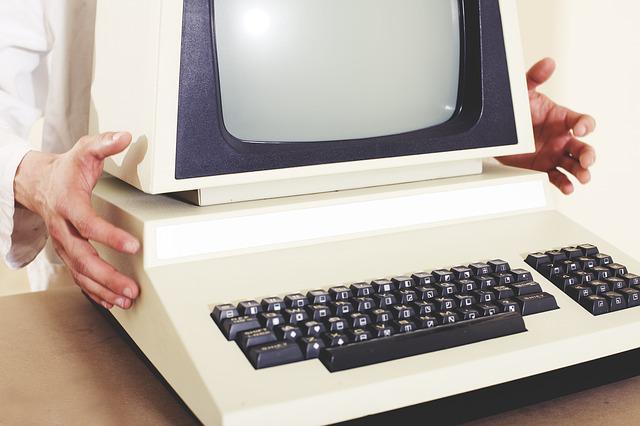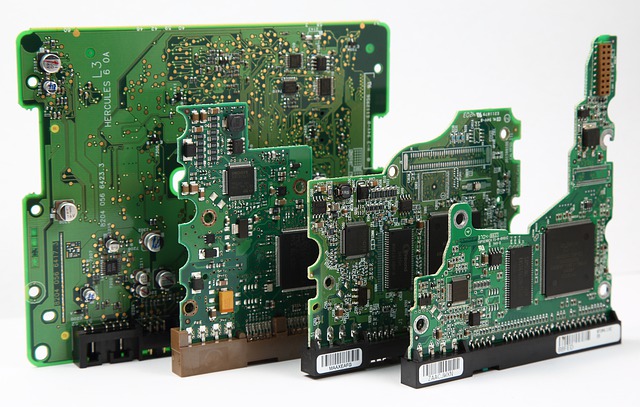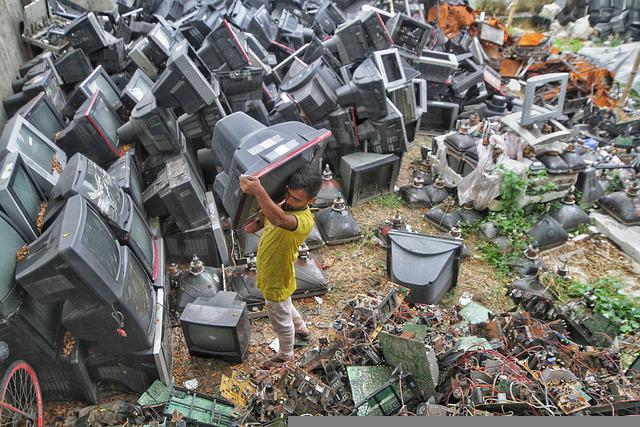
Most people think computers can be used as a storage medium as well as a tool for searching for knowledge online. Why do you think they are recycled if they seem so valuable to us? Is this commonly the case? Throwing your old computer into the trash can be a good idea, but it can be dangerous to dispose of. But that doesn’t mean that you have to use your laptop as a huge paperweight either. If you think that an old computer is not worth much then think again.
A recycler’s magic combines hundreds of items that are not valuable to you alone and when sold in bulk, can actually be worth hundreds if not thousands of dollars. Computer equipment of all types often contains valuable components both for reuse as well as for selling for scrap value.
Receiving and Pre-Processing
When it comes to recycling electronics, like desktop computers, specialists in e waste sort and process the computer equipment based on client requirements. At the outset, a recycled computer gets broken down into its base components as part of the initial recycling process.
All electronic equipment will be separated into base components such as the circuit boards, and computer monitors, and will also remove the hard drive to store apart from other parts.
Before even thinking about recycling your computer, you should seriously consider removing any and all sensitive information from your hard drive to avoid any data breaches or loss of personal information, or even identity theft. Some recycling centers will have some form of data destruction but usually, it comes in the form of smashing your hard drive which may or may not happen with absolute certainty. Data security, therefore, is up to you to safeguard.
Depending on the process used for computer recycling at the recycling facilities will depend on how the old computers are processed. Many old computers have monitors with cathode ray tubes often from computer manufacturers that are no longer in business. These monitors contain toxic substances and should be handed to waste recycling personnel for safe disposal.
Disposal by weight

When weight is used in a recycling process the pre-processing may include weighing the computer and/or computer parts as it is received at the collection points. These electronics can then be added to the recycling process to begin their recycling journey and thus avoid ending up in landfills like many other used electronics.
When adding up the total weight of old consumer electronics during the e waste recycling process obsolete computers tend to weigh considerably more due to the fact they were made with heavy metals and dense materials.
Disposal by item

More modern e waste recycling facilities have the means to presort electronic equipment into basic components such as the main circuit board, hard drives, and peripherals; small devices like mice and keyboards.
When recycling computers it is important to remove as much e waste from the waste stream so that the highest percentage of these now obsolete computers can be inserted into the recycling process.
Hazard Removal

The next step is removing and separating hazardous waste from computers after receipt of the equipment such as batteries or toners, ink, and mercury tubes. The manual process is important in providing a safe environment and ensuring these hazardous materials are dealt with safely and that they avoid landfills.
Sadly a lot of old electronic products find their way to developing countries where the recycling is done by hand with little to no protection from toxic substances or hazardous materials. Circuit boards, hard drives as well as many other devices and components are broken down to obtain the precious metals contained within. Not all metals are valuable but you will find small amounts of platinum and gold in most relatively new computer parts.
Shredding
Major recycling centers have automatic machines such as conveyors and sorters to handle the sheer volume of electronic waste entering the recycling process. Handling the components in this way has a positive impact as old computers and devices can be sorted and dealt with quickly. Using these machines saves energy and they often outperform manual sorters which help to save the environment.
Metals such as copper can be recovered and recycled as well as other precious metals where possible, other computer equipment such as plastic casing is hard to recycle and is often discarded by people when upgrading their computers.
After hazards are removed, the computers are loaded onto conveyors and sent into the shredding machines. The shredder breaks out large pieces, between two and six inches thick. The first step prepares e waste for the separation and processing of plastic parts with metal.
Nearby, manned support services include data loss, parts recovery, asset repair, resell, and management of safe dumping of harmful substances. These support teams ensure the waste stream flows smoothly and all materials are identified as e waste or regular waste that needs to be disposed of.
When computer hard drives are shredded this pretty much guarantees data destruction as obliterating these drives is one of the most truly secure ways of destroying your personal information forever.
Sorting of commodities
After shredding, the conveyor belt passes through an electromagnetic field and through infrared cameras and air jets. This technology separates material types from e-waste streams. Iron is separated from the electronic waste, and aluminum, copper, and circuit boards are also separated. Upon removal, the bulk metal can be sorted into ABS and Polystyrene plastics. The final stage of the process consists of removing the remaining materials to remove the remaining metal and increase the purity of the resulting material.
What materials can be recycled in a computer?
When recycling computers you should think about the age and condition of the components. The main circuit board, for example, may be incompatible with newer machines and should, therefore, be sent for computer recycling. Other circuit boards, like graphics cards, may be newer and can possibly be recycled onto a newer computer instead of being tossed out.
Do computers go to landfills?

Sadly yes, when it comes to computer recycling, not enough focus is being put into building adequate numbers of e waste facilities that can handle the volume of computer materials that we currently throw away each year. Many computers simply get sent to developing countries after they have been sanitized, that is all relevant data and software programs have been removed.
Many companies and even some manufacturers send their old computers and even some new products to these developing nations, however, it is still insufficient amounts to fully cover our e waste processing and computer recycling needs.
What parts of a PC cant be recycled?
When we think about recycling computers it becomes a much more complex process as computers are made up of many different materials some of which you can recycle and others that will never be recycled no matter how much we get of those items.
Manufacturers are slowly coming around to the concept of reuse rather than the waste of materials and energy. Parts typically not recycled include mice and keyboards, old circuit boards, and cathode ray tube monitors. It’s almost impossible to reuse or even recycle these products as they are more costly to repair or recover the materials from than they are to simply toss into the waste bin which could harm the environment.
Can computer plastic be recycled?
In today’s world a lot of plastic is recycled but what about computer plastic? Yes, this too can be added to our computer recycling and e waste processes which not only keep our rubbish dumps free of plastics but also saves energy. But what can we do with them? Many small companies and individuals have started taking the glass, plastics, and metals from old computers and have begun turning them into new products, for example, taking copper wires and circuit boards, and other materials and turning them into small side tables, hanging art, or even funky lamps.
Are computers reusable?
If you have an old computer that you are thinking about recycling then think if it’s possible you can reuse it for something rather than turn it into e waste. For many of us, we can make use of our old tech rather than buying new products and filling our landfills with unnecessary materials which could be either used by someone else or made available for recycling.
Can an old computer be refurbished?
If you have an old computer then there is a good chance it can be refurbished rather than sent for recycling. For most people who are not gamers, upgrading a few items in your computer will allow you to reuse it, and eliminate the need for recycling altogether.
Some items like your hard drive and main CPU will be obsolete the fastest so these would be the first port of call when considering an upgrade.
Do I need to wipe my computer before recycling?
Before ever giving away or recycling your computer you should wipe the drive(s), clearing them of any personal or sensitive information to avoid it falling into the hands of unscrupulous individuals who may be looking to exploit your failure to do so.
You can easily search online for a company to do this for you, however, there are ways you can easily do this yourself for a fraction of the price that a professional may charge.
How do I wipe my old computer before recycling?
If you wish to do this yourself then the best way is to search online for your computer model and then use this information to find a company who can either supply you with the right programs to do this, or if you are a little unsure if only software will really work then you can open your computer yourself and physically destroy the drives thus avoiding the need for specialized programs to do it for you.
Looking to make money from crafts?
Click here to learn how with our step-by-step guide showing you everything you need to know.

